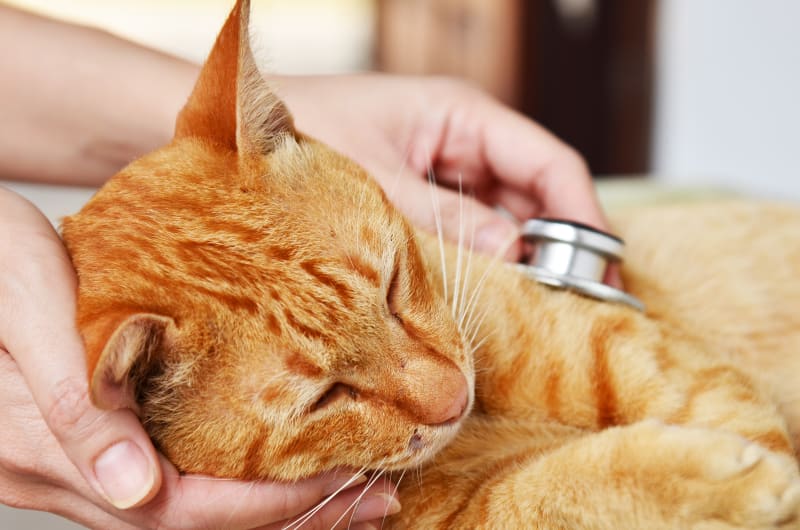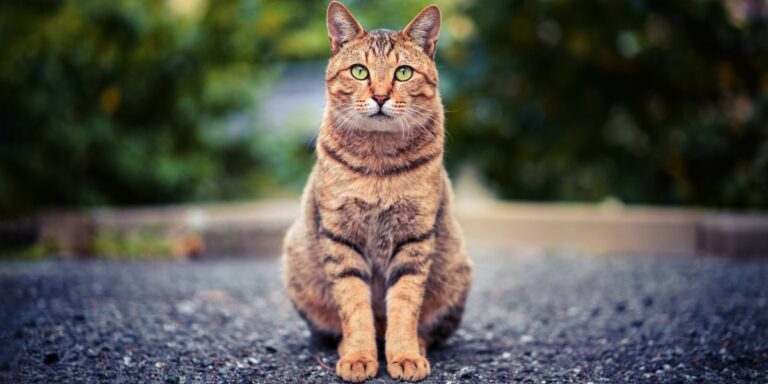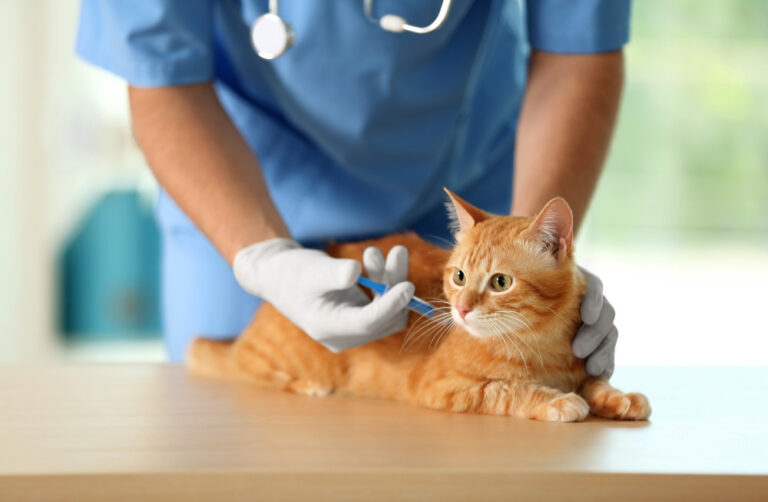Strengthening your cat’s immune system
Understanding the feline immune system
The feline immune system is a complex network of cells, tissues, and organs that work together to defend the body against harmful pathogens and foreign invaders. It plays a crucial role in keeping your cat healthy and protected from diseases.
At the core of the feline immune system are white blood cells, also known as leukocytes. These cells are responsible for recognizing and destroying harmful substances such as bacteria, viruses, and parasites. In addition to leukocytes, the immune system also relies on other components like antibodies, which are proteins that bind to foreign substances and neutralize them. Understanding how the feline immune system works is essential for pet owners to provide the necessary care and support to keep their cats’ immune health in optimal condition.
Key factors affecting your cat’s immune health

A cat’s immune health is influenced by various factors, which can significantly impact their overall well-being. Diet plays a crucial role in maintaining a robust immune system. Feeding your feline companion a balanced and nutritious diet can provide essential vitamins, minerals, and antioxidants that contribute to a strong immune response. Including high-quality protein sources, such as meat or fish, along with a variety of vegetables, helps ensure that your cat receives the necessary nutrients for optimal immune function. Additionally, it is essential to avoid excessive feeding or relying on low-quality commercial pet food as these can compromise the immune system and lead to various health issues.
Regular veterinary check-ups are another key factor in supporting your cat’s immune health. Routine examinations allow your veterinarian to assess your cat’s overall health and detect any potential diseases or infections early on. These check-ups also provide an opportunity for your veterinarian to administer necessary vaccinations, which are essential in boosting your cat’s immune response against common diseases. By staying proactive with regular visits to the vet, you can ensure that your cat receives the proper care and medical attention they need, ultimately helping to strengthen their immune system and protect their well-being.
Providing a balanced and nutritious diet for your cat
A balanced and nutritious diet plays a crucial role in maintaining your cat’s overall health and promoting a strong immune system. Feeding your feline friend with high-quality cat food that is specifically designed to meet their nutritional needs is essential. Look for cat food that is labeled as “complete and balanced,” meaning it contains all the necessary nutrients in the right proportions.
Proteins are a vital component of your cat’s diet as they provide the necessary building blocks for healthy cells and tissues. Opt for cat food that contains animal-based proteins, such as chicken or fish, as they are more easily digestible by cats. Additionally, ensure that the diet includes essential fatty acids, such as omega-3 and omega-6, which are crucial for maintaining a healthy coat and skin. While carbohydrates can be included in your cat’s diet, it’s important to remember that cats are obligate carnivores and derive most of their energy from proteins rather than carbohydrates.
The importance of regular veterinary check-ups

Regular veterinary check-ups are crucial for maintaining the overall health and well-being of your beloved feline companion. These visits provide an opportunity for the veterinarian to assess your cat’s physical condition, detect any potential health issues, and provide early intervention if necessary. Additionally, these regular check-ups allow for the administration of essential vaccinations and preventative treatments that can significantly boost your cat’s immune response and protect them from common feline diseases.
During these check-ups, your veterinarian will conduct a thorough examination of your cat, including checking their heart rate, respiratory rate, and body temperature. They will also examine their eyes, ears, mouth, and skin for any signs of infection, inflammation, or abnormalities. Through hands-on palpation, the veterinarian can assess the internal organs, lymph nodes, and other body structures for any signs of potential issues. With their expertise, they can identify potential health problems early on, even before symptoms become apparent to you, providing the chance for prompt treatment and better overall outcomes.
Maintaining a clean and stress-free environment for your cat
A clean and stress-free environment is vital for the overall well-being of your cat. Cats are naturally clean animals and they appreciate a tidy and organized living space. Regularly cleaning their litter box is crucial to ensure hygiene and prevent the spread of harmful bacteria. Cats are also known to be sensitive to their surroundings, so keeping their environment clutter-free can help reduce stress and promote a sense of calm.
In addition to cleanliness, it is essential to create a stress-free environment for your cat. Cats can easily become anxious or overwhelmed if they are exposed to loud noises, busy households, or sudden changes in their routine. Providing a quiet and peaceful area where your cat can retreat to is important for their emotional well-being. This can be as simple as setting up a cozy corner with a comfortable bed and a few toys away from high traffic areas. Additionally, introducing a regular routine and maintaining consistency in feeding and playtime can contribute to a stress-free environment for your feline friend.
Promoting exercise and physical activity in your cat’s routine
Regular exercise and physical activity are important for maintaining your cat’s overall health and well-being. Just like humans, cats also need to stay active in order to prevent obesity and associated health issues. Encouraging your feline friend to exercise can be as simple as providing them with toys that encourage movement and play. Interactive toys, such as feather wands, laser pointers, and treat-dispensing puzzles, can engage your cat’s natural hunting instincts and keep them active and entertained. Additionally, setting aside dedicated playtime each day where you actively engage with your cat can help ensure they get the exercise they need.
Incorporating vertical spaces, such as shelves, cat trees, and climbing posts, can also encourage your cat to be more active. Cats naturally love to climb and explore their surroundings, so providing them with these structures can help fulfill their natural instincts while also promoting physical activity. Ensure that these structures are within your cat’s reach and are sturdy and stable to prevent any accidents or injuries. Furthermore, introducing your cat to a scratching post can also provide an outlet for their energy and keep their muscles toned. By promoting exercise and physical activity in your cat’s routine, you not only help them stay fit, but you also provide mental stimulation and prevent behavioral issues that may arise from boredom or frustration.
Identifying and managing potential allergens in your cat’s surroundings
Allergies can affect cats just like they can affect humans. Identifying and managing potential allergens in your cat’s surroundings is crucial to maintaining their immune health. Cats can be allergic to a variety of substances, including certain foods, pollen, dust mites, and even certain materials such as wool or plastic.
To identify potential allergens, it is important to observe your cat’s behavior and take note of any unusual symptoms they may exhibit. Common signs of allergies in cats include excessive scratching, sneezing, watery eyes, vomiting, and diarrhea. Once you have identified the allergen, the next step is to remove or reduce your cat’s exposure to it. This can involve making changes to their diet, using hypoallergenic bedding or litter, and regularly cleaning their living areas to minimize the presence of allergens. Additionally, consulting with a veterinarian can help in developing a suitable plan to manage your cat’s allergies and ensure their comfort and well-being.
The role of vaccinations in boosting your cat’s immune response
Vaccinations play a vital role in enhancing your cat’s immune response against various infectious diseases. By stimulating the immune system, vaccines help prepare your cat’s body to recognize and fight off specific pathogens, such as viruses or bacteria. They achieve this by introducing a harmless form of the pathogen or a component of it into the body, triggering an immune response without causing illness.
One of the primary advantages of vaccinations is their ability to prevent certain diseases entirely. Vaccines help stimulate the production of specific antibodies that act as a defense mechanism against particular pathogens. These antibodies not only neutralize the pathogens but also aid in the rapid recognition and clearance of any subsequent infection. This way, vaccinations provide your cat with a powerful shield against common and potentially life-threatening diseases, ensuring their overall health and well-being.
What is the feline immune system?
The feline immune system is the body’s defense mechanism against diseases and infections. It consists of various cells, tissues, and organs that work together to protect the cat’s health.
What factors can affect my cat’s immune health?
Several factors can affect your cat’s immune health, including genetics, age, stress levels, nutrition, and overall health. It is important to address these factors to maintain a strong immune system.
How can I provide a balanced and nutritious diet for my cat?
To provide a balanced and nutritious diet for your cat, ensure that their food contains essential nutrients, such as proteins, vitamins, minerals, and omega-3 fatty acids. Consult with your veterinarian for specific dietary recommendations based on your cat’s age, breed, and health condition.
Why are regular veterinary check-ups important for my cat’s immune health?
Regular veterinary check-ups are essential for monitoring your cat’s overall health, detecting any potential health issues early on, and ensuring they receive necessary vaccinations and preventive treatments to boost their immune system.
How can I maintain a clean and stress-free environment for my cat?
To maintain a clean and stress-free environment for your cat, regularly clean their living area, provide adequate litter boxes, and minimize exposure to potential stressors such as loud noises or sudden changes in routine. Providing hiding spots and opportunities for mental stimulation can also help reduce stress.
How can I promote exercise and physical activity in my cat’s routine?
To promote exercise and physical activity in your cat’s routine, provide them with interactive toys, play with them regularly, and create an environment that encourages climbing, jumping, and exploring. Engaging your cat in physical activities not only helps strengthen their immune system but also improves their overall well-being.
How can I identify and manage potential allergens in my cat’s surroundings?
To identify and manage potential allergens in your cat’s surroundings, observe any allergic reactions they may have, such as itching, sneezing, or skin irritation. Consult with your veterinarian to rule out any underlying health issues and discuss potential allergens in your cat’s environment. Taking necessary steps, such as using hypoallergenic products or minimizing exposure to allergens, can help manage their immune response.
What is the role of vaccinations in boosting my cat’s immune response?
Vaccinations play a crucial role in boosting your cat’s immune response by introducing a harmless form of a disease-causing pathogen. This stimulates the immune system to produce antibodies, which provide protection against future infections. Regular vaccination schedules recommended by your veterinarian are essential to maintain your cat’s immune health.








One Comment